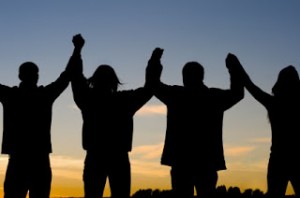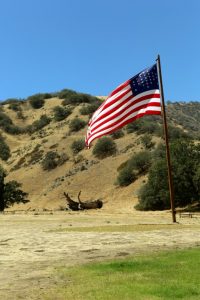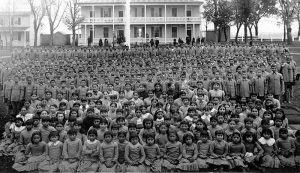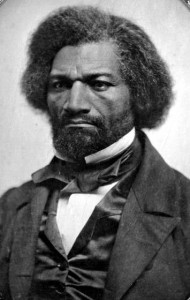Growing up, I loved celebrating the Fourth of July.
Most years, my family would head to a nearby large, grassy park late afternoon. We’d watch the small-town parade of veterans and boy scouts and antique cars and children on streamer-bedecked tricycles. One year we even entered ourselves and rode on a “covered wagon” built onto our 4X8 trailer, dressed as pioneers.
Then we’d picnic on the blanketed spot my dad had staked out early in the morning, visiting with neighbors and friends, eating chicken and potato salad and fresh cherries. A “Dad’s Band” of Dixieland musicians would play in the bandstand, hats trimmed red, white and blue. As the summer sky finally grew dark, we’d sit back and watch the fireworks light up the sky with blazing booms, all set to a score of stirring patriotic music. And my heart would swell with a love and pride for this “land of the free and home of the brave”…America.
I’ve always loved American history, ever since my heart and imagination were captured by the “Little House on the Prairie” books as a little girl. As a teenager, I dug deeper into “America’s godly heritage.” I listened to tapes and read books a nd wrote impassioned essays about the faith of our founding fathers, and how they’d laid the foundations of this land on biblical principles.
nd wrote impassioned essays about the faith of our founding fathers, and how they’d laid the foundations of this land on biblical principles.
But in recent years, I’ve begun to realize that much of that history I’d loved and wrote about was whitewashed…in more ways than one. And I think that’s true for many of us in our country today, at least those of us with primarily European heritage, like me.
Because we have had the privilege of focusing on our version of history. The conquerors’ history. And as uplifting as that narrative can seem, it’s a lopsided version of the story. It largely ignores the fact that in our Declaration of Independence, despite the beautiful words about “all men created equal,” really all that was practically meant was that all white men were created equal. Mark Charles, one of my Navajo friends and mentors, points out that only thirty lines down in that same revered document, the Native peoples of this land are labeled “merciless Indian savages.” And the millions of slaves of African heritage whose labor largely built this land aren’t mentioned at all.
A different light has begun to shine on all of American history for me—from the Revolutionary battles (Patriots fighting for a land that shouldn’t even have been theirs?) to the westward wagon trains (pushing First Nations tribes into containment or annihilation) to even World War II, when American troops fought Nazi tyranny and racism while atrocities just as horrible, if not as concentrated, were committed at home in lynchings, Jim Crow laws, and abusive boarding schools for Native children not even counted citizens of their own land.
As I’ve learned this darker, messier, but truer view of American history, I’ve struggled when it comes to holidays like the Fourth of July. Part of me has wanted to celebrate it with a light heart as I did in years past—part of me has felt guilty for celebrating at all. Another part has felt guilty for feeling guilty. Maybe some of you have felt the same way…I know it’s a struggle for many Americans of color today, as I hear the heart of my friends on Facebook or read articles like this one online.
But this struggle isn’t new. Frederick Douglass, in one of his most famous speeches given on this day, July 5, 1852, asked the President and other gathered audience, “What to the Slave is the Fourth of July?” It’s
a historic speech well worth a read.
On this Fourth of July, my husband and I watched the movie The Patriot, with Mel Gibson. My emotions were mingled throughout, but one brief shot in the film struck me. Early on, when the ragtag American colonists were getting beaten by the British on every front, the main character walks through a bedraggled camp of Patriots. He finds a homemade flag trampled in the dust, its thirteen stars and stripes in tatters.
“It’s hopeless,” a nearby soldier mutters.
Those words struck to my heart, looking at that tattered and trampled flag. Is it hopeless, I wondered? Is it futile to even hope and strive that our country might someday live up to what it claims to be—a land where all men, and women, truly are treated as equal, a place of actual freedom and justice for all?
Maybe it’s not hopeless, I thought. Maybe, even if it has never been the mythical, shining America we like to think of, maybe it still could be, someday, if we can all work together.
But then I remembered—that’s not the main goal to strive for, not for followers of Jesus. There never will be a perfect country, a truly “Christian” nation. But I don’t believe that’s really what the Lord has called His people to, anyway. He told us, “My Kingdom is not of this world.” And whenever Christians have tried to make it so—whether through the Holy Roman Empire, the Crusades, or our own America—the result has brought much damage and injustice.
But that doesn’t mean “it’s hopeless.” Because although His Kingdom is not of this world, it is here nevertheless. And as His people, we can be part of it—not in building a “perfect” human political structure, but in spreading His Kingdom throughout the whole world, in the day-to-day, human, grassroots, mustard seed-and-yeast-and-fishermen ways that Jesus loves to work. As wherever we, as His followers, seek to do justice, love mercy, and walk humbly with our God.
America isn’t the hope of the world. Christ is,  and His Kingdom is. And not “we the people,” but “we His people,” whether in America, Nigeria, France, Korea, or anywhere else, can be part of what He is doing, to someday overcome all our darkness with His light.
and His Kingdom is. And not “we the people,” but “we His people,” whether in America, Nigeria, France, Korea, or anywhere else, can be part of what He is doing, to someday overcome all our darkness with His light.
This new article by Mark Charles, “The Fleeting Beauty of Fireworks,” gave me hope and encouragement for how to celebrate the Fourth of July while acknowledging both the light and the dark of American history. Check it out—I think you might be blessed too.
So what do you think? Do you struggle with celebrating the Fourth of July, in light of the turmoil in our past (or present)? Or is it something you’ve even thought about before? I’d love to hear your thoughts!





Kiersti:
I wrote this poem last year. I know there is much more to positive stories – with our favorite Canadian stories as well.
Inspiration Porn
I can be a sucker for feel-good stories,
amazing coincidences,
miracles that happen
when everything falls
in place in unexpected ways.
Inspiration Porn,
a recent expression given voice,
to spreading distaste
on stories of disability, heroism, hardships
in people whose difficulties are successful
in being managed or overcome.
When thinking of porn,
it takes sexuality
out of context of relationship.
It also is not genuine
if inspiring stories is all we hear and read,
taken out of context of the whole
wide variety of experiences,
.
Ann of Green Gables, a story of child labour legitimized, separating 100,000 british poor children from their parents, siblings and country (who were not orphans, just poor) as only 2% were orphans. This home child immigrant movement may have set the precedent for the residential schools for native chidren – estranging poor children from their parents. What well-known story books tell the rest of these experiences of childhood neglect, years paying boat fare, poor treatment, sex and physical abuse, overwork? (I have since seen a movie from Denmark with similarities to Residential schools for orphans/juvenile delinquents – the 1960’s was more authoritarian than I thought.
* this applies to war stories, refugee stories, stories of those who are disabled or injured, victims of crime or lives are affected by a disease. If we tell only the success stories of those in troubling circumstances, we don’t have to worry about or pay attention to those who have not fared as well.
Such interesting points, Wilma Christine–thank you for sharing!